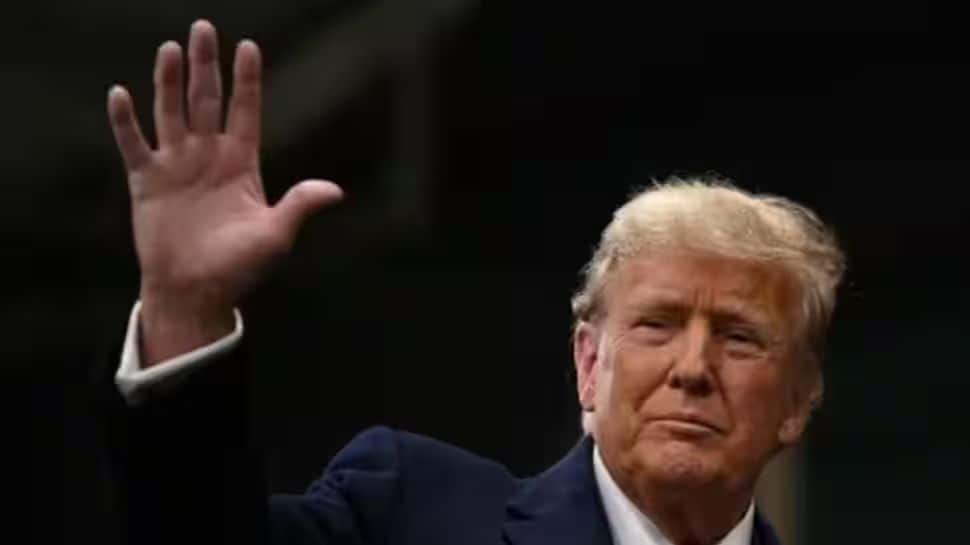 |
|
The recent sentencing of President-elect Donald Trump in the hush money case marks a pivotal moment in American history. The Manhattan judge, Juan M. Merchan, delivered a verdict that, while confirming Trump's guilt on a felony charge, notably refrained from imposing a jail sentence or financial penalties. This decision, although seemingly lenient, is deeply complex, intertwined with legal precedents concerning the protections afforded to sitting presidents and the unprecedented nature of a former president facing criminal charges and winning election to the office again. The case centered around payments made during the 2016 presidential campaign to silence allegations made by adult film actress Stormy Daniels. The conviction itself is a landmark event, establishing Trump as the first US president to hold a felony conviction. The ramifications of this extend far beyond the immediate legal ramifications for Trump himself; it raises profound questions about the integrity of the presidency, the fairness of the justice system, and the broader implications for future political discourse and elections.
Judge Merchan's decision not to impose jail time or fines was heavily influenced by legal protections surrounding the office of the president. These protections, although designed to ensure the stability and effective functioning of government, have come under intense scrutiny in light of this case. Critics argue that such safeguards could potentially shield powerful individuals from accountability, undermining the principle of equal justice under the law. Supporters, on the other hand, contend that these protections are necessary to prevent partisan attacks on the presidency and maintain the integrity of the executive branch. The judge's careful articulation of the legal reasoning behind his sentencing decision underscores the delicate balancing act he faced: acknowledging the severity of Trump's crime while also recognizing the existing legal framework designed to protect the office of the presidency. This necessitates an exhaustive analysis of these legal protections, their historical context, and the broader debates surrounding presidential immunity and accountability.
Beyond the immediate legal repercussions, the case has unleashed a torrent of political and social commentary. The division within the American public is stark, with staunch supporters of Trump rallying around him and viewing the case as a politically motivated persecution, while opponents see the conviction as a victory for the rule of law and a necessary rebuke of Trump's conduct. The historical implications are undeniable. This event is unprecedented in American political history, forcing a reassessment of the norms and expectations surrounding the presidency and the intricate relationship between the executive and judicial branches. The impact on future elections and the political landscape is yet to be fully understood. The case raises broader questions about the role of the media in shaping public perception, the influence of partisan politics on the justice system, and the ongoing debate regarding presidential power and accountability. Furthermore, the ethical and moral implications of the case extend beyond the legal realm, raising essential questions about the conduct of public officials and the standards of behavior expected of those who hold the highest office in the land.
The ongoing debate surrounding this case is likely to continue for years to come. Scholars will dissect the legal arguments, political analysts will scrutinize its impact on the political landscape, and historians will place it within the larger context of American presidential history. The lack of a traditional sentence raises crucial questions about the effectiveness of the justice system in holding powerful figures accountable. While the case is technically closed, its legacy will undoubtedly shape future discussions about presidential immunity, judicial independence, and the balance of power in the American system of government. The long-term consequences of this case remain uncertain, but it has undeniably irrevocably altered the dynamics of American politics and the public’s understanding of the limits of presidential power and the accountability of those who hold office.
In conclusion, the sentencing of Donald Trump in the hush money case marks a watershed moment in American history, a profound turning point with far-reaching implications. The decision not to impose a jail sentence or fine, while legally permissible given the protections afforded to a sitting president, has sparked a firestorm of controversy. The long-term impact on American politics and the public's faith in the justice system remains to be seen. However, the case will undoubtedly serve as a case study for future generations, a testament to the ongoing tension between the rule of law, presidential power, and the complexities of holding those in positions of immense authority accountable for their actions. The enduring legacy of this case will be a subject of intense scrutiny and analysis for years, shaping political discourse and influencing debates surrounding presidential authority and accountability for decades to come.
Source: US Judge Sentences Donald Trump In Hush Money Case, Avoids Jail Or Fine
